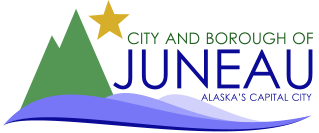Public comment open for Juneau Police Department spending plan for FY24 Justice Assistance Grant (JAG) Program funding
The Edward Byrne Memorial Justice Assistance Grant (JAG) Program is the leading source of federal justice funding to state and local jurisdictions. The FFY24 JAG allocation and award to the City and Borough of Juneau, Juneau Police Department is $34,305. The Police Department’s full spending plan proposal for these funds can be found on the City’s website, at the link below.
This proposal will not pass through the City and Borough of Juneau’s Assembly for public hearing. A resolution will be submitted to the Assembly for final consideration and adoption supporting the grant and its funding uses. The Assembly appropriated authority for these expenditures in the Police Department’s FY25 City Budget.
The U.S. Department of Justice JAG Program requires a 30-day public comment period prior to releasing funds for the FFY24 JAG Program. The public can submit comments to Stevie Gawryluk, City and Borough of Juneau Budget Analyst, electronically at [email protected], or via mail to 155 Heritage Way, Juneau, AK 99801. All public comments will be taken into full consideration after the required 30-day comment period has closed on January 18, 2024.
For more information, contact CBJ Budget Analyst Stevie Gawryluk at (907) 586-5215 ext. 4070.
FY24 JPD Edward Byrne Memorial Justice Assistance Grant (JAG) Spending Plan
